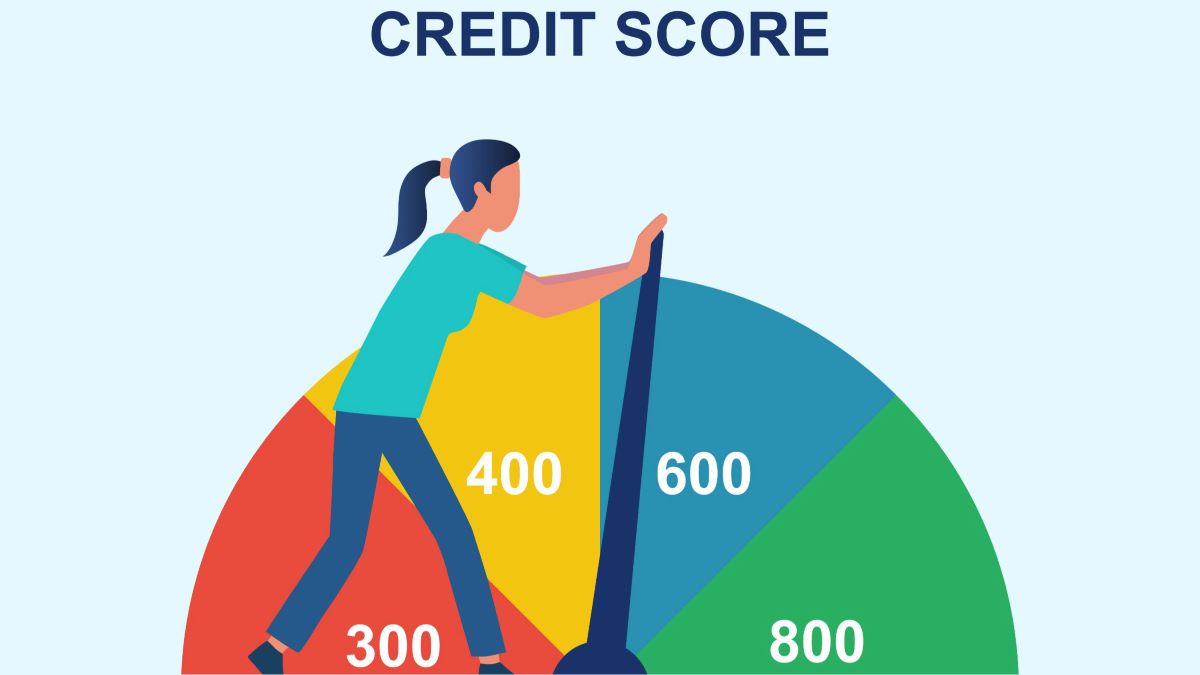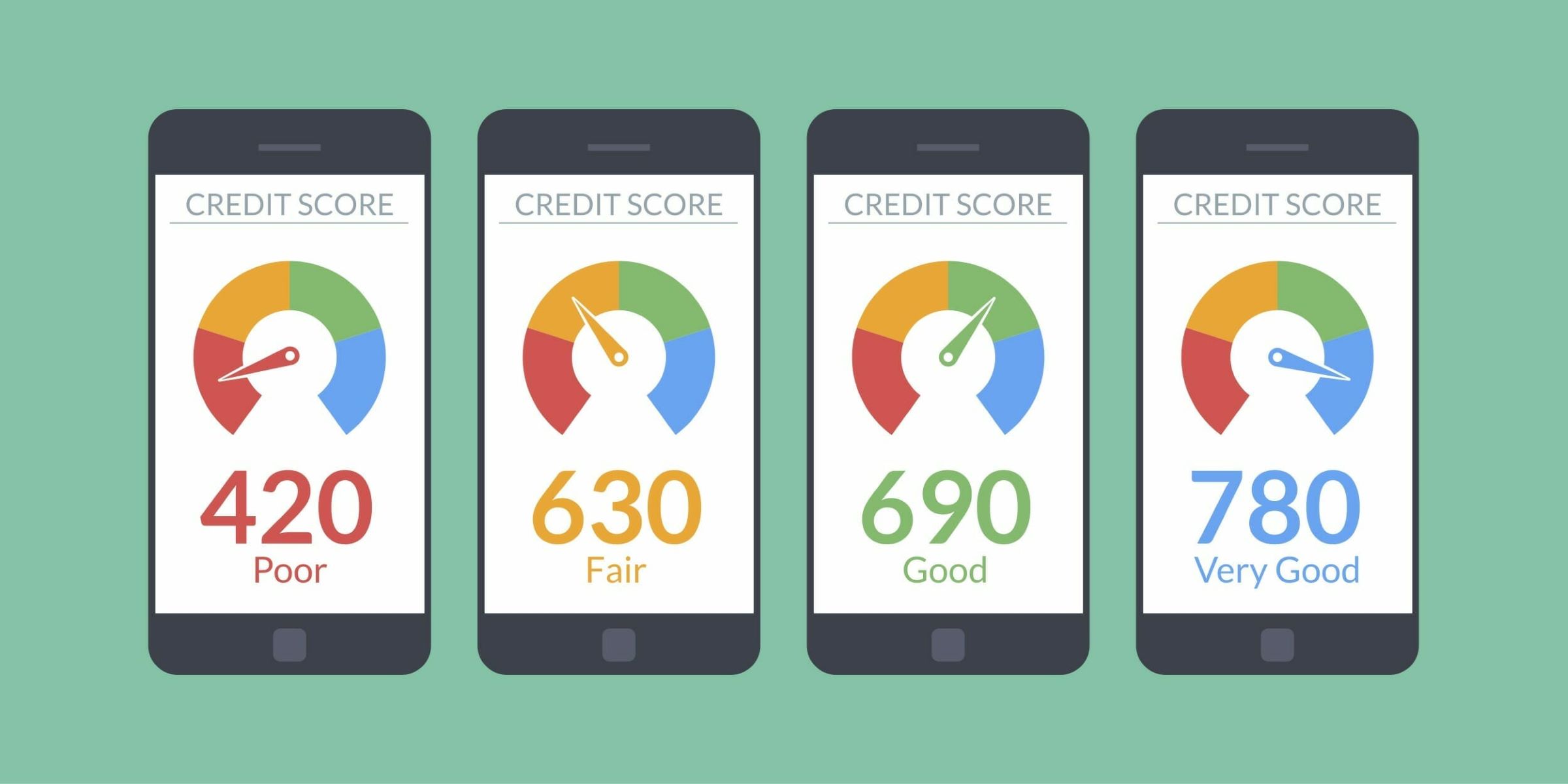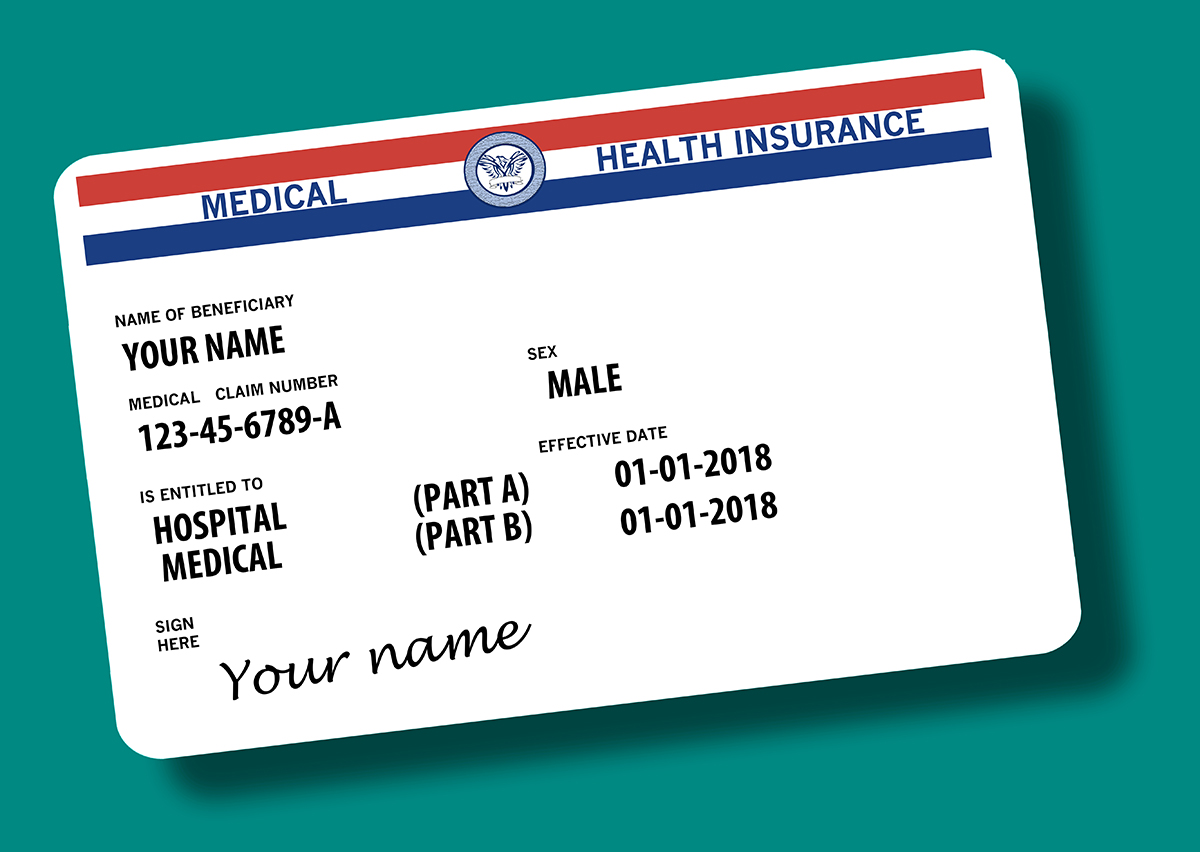

Finance
What Credit Score Does Chase Use
Modified: March 6, 2024
Discover what credit score Chase uses in their finance decisions and how it can impact your financial future.
(Many of the links in this article redirect to a specific reviewed product. Your purchase of these products through affiliate links helps to generate commission for LiveWell, at no extra cost. Learn more)
Table of Contents
Introduction
Welcome to our comprehensive guide on credit scores and how they relate to Chase Bank. Your credit score plays a crucial role in determining your financial health and access to credit. Understanding how credit scoring works can empower you to make informed decisions and take steps to improve your creditworthiness.
Chase Bank is one of the largest and most reputable financial institutions in the United States. Whether you’re looking to apply for a credit card, a personal loan, or a mortgage, having a good credit score is essential to securing favorable terms and conditions. In this article, we will explore what credit scores are, why they matter, and the specific factors that Chase considers when making credit decisions.
Furthermore, we will delve into the credit scoring models used by Chase and provide valuable insights on how to improve your credit score to increase your chances of approval for Chase credit cards and other financial products. So, let’s begin by understanding the concept of a credit score.
What is a Credit Score?
A credit score is a three-digit number that represents your creditworthiness. It is a numerical representation of your credit history and reflects how responsible you have been in managing your credit obligations. Lenders, including banks like Chase, use credit scores to determine the likelihood of you repaying borrowed funds on time and in full.
There are different credit scoring models, but the most commonly used one is the FICO score, developed by the Fair Isaac Corporation. FICO scores range from 300 to 850, with higher scores indicating a lower risk of defaulting on credit obligations. It’s important to note that other credit reporting agencies, like Experian, Equifax, and TransUnion, have their own credit scoring models that may vary slightly in calculation or scale.
Credit scores are based on a variety of factors, including:
- Payment history: Your track record of making payments on time
- Credit utilization: The amount of available credit you’re using
- Length of credit history: The age of your credit accounts and the average length of time your accounts have been open
- Credit mix: The types of credit accounts you have, such as credit cards, loans, or mortgages
- New credit: The number of recently opened credit accounts and inquiries made on your credit
These factors help credit scoring models assess the risk associated with lending to you. Having a higher credit score not only increases your chances of approval for credit applications but also allows you to access credit at better interest rates and terms.
Importance of Credit Score
Your credit score has a significant impact on your financial life. It serves as a measure of your creditworthiness and affects your ability to secure loans, credit cards, mortgages, and other forms of credit. Understanding the importance of your credit score can help you take control of your financial future. Here’s why your credit score matters:
Access to Credit:
A good credit score increases your chances of being approved for credit applications. Lenders, including Chase Bank, use credit scores to assess the risk involved in lending to you. A higher credit score indicates that you are more likely to repay your debts on time, which makes you a more attractive borrower. This can open doors to better credit card offers, more favorable loan terms, and higher credit limits.
Interest Rates and Terms:
A strong credit score can save you money by enabling you to access credit at favorable interest rates and terms. Lenders view borrowers with higher credit scores as less risky, so they offer them lower interest rates. This means that with a good credit score, you will pay less in interest over time, making credit more affordable.
Rentals and Utilities:
It’s not just lenders who consider your credit score. Landlords and utility companies often use credit scores as a factor in their decision-making process. A low credit score may result in difficulty securing a rental property or having to pay a higher security deposit. Utility service providers may also require a deposit for those with lower credit scores.
Insurance Premiums:
Credit scores can also influence the cost of insurance premiums. Insurers use credit-based insurance scores to assess the likelihood of a policyholder filing a claim. A lower credit score may result in higher insurance premiums or even denial of coverage.
By understanding the importance of your credit score, you can take steps to manage your credit responsibly, improve your score, and enjoy the financial benefits that come with a higher credit rating. In the next section, we will take a closer look at Chase Bank and its role in credit decisions.
Overview of Chase Bank
Chase Bank, often referred to as JPMorgan Chase, is one of the largest and most well-known banks in the United States. It is a subsidiary of JPMorgan Chase & Co., a multinational investment bank and financial services company. Chase Bank offers a wide range of financial products and services, including checking and savings accounts, credit cards, mortgages, auto loans, and investment services.
With its extensive branch network and user-friendly online and mobile banking platforms, Chase provides convenient access to banking services for millions of customers across the country. The bank’s commitment to customer satisfaction has earned it a reputation for excellent customer service and a strong track record in the financial industry.
Chase Bank is known for its diverse lineup of credit cards, catering to a wide range of customer needs and preferences. From travel rewards and cashback cards to cards with flexible redemption options, Chase offers a variety of credit cards that appeal to different lifestyles and spending habits.
In addition to credit cards, Chase Bank is a major player in mortgage lending, providing home loans to both individuals and businesses. The bank’s mortgage services include fixed-rate and adjustable-rate mortgages, refinancing options, and government-backed loans like FHA and VA loans.
Furthermore, Chase Bank offers competitive rates on auto loans, helping customers finance their vehicle purchases. The bank provides pre-approval options and allows customers to apply for an auto loan online, making the process simple and convenient.
Chase Bank takes pride in its commitment to financial education and provides resources to help customers make informed decisions about their money. The bank offers financial management tools, budgeting tips, and educational articles on its website to empower individuals to achieve their financial goals.
Now that we have an understanding of Chase Bank’s role in the financial industry, let’s explore the credit scoring models that Chase uses to evaluate credit applications in the next section.
Which Credit Score Does Chase Use?
When it comes to evaluating creditworthiness, Chase Bank uses the FICO credit scoring model, which is the most widely recognized and utilized scoring system in the United States. Specifically, Chase relies on the FICO 8 scoring model, which takes into account information from all three major credit bureaus: Experian, Equifax, and TransUnion.
The FICO 8 scoring model analyzes various factors in your credit history to calculate your credit score. These factors include:
- Payment history
- Amounts owed
- Length of credit history
- Credit mix
- New credit
Chase Bank uses FICO scores because they are highly regarded by lenders and are considered a reliable measure of creditworthiness. This means that maintaining and improving a good FICO score can increase your chances of approval for Chase credit cards and other financial products.
It’s important to note that while Chase primarily relies on the FICO 8 scoring model, they may also take other factors into consideration when evaluating credit applications. This can include your income, employment history, and previous banking relationship with Chase.
Obtaining your FICO score is relatively easy, as you can request it directly from the official FICO website or through your Chase online banking account. Monitoring your credit score regularly allows you to track your credit health and identify areas for improvement.
Remember, each lender may have specific requirements and different criteria for evaluating credit applications. While Chase uses the FICO 8 scoring model as a foundation for their credit decisions, they may also consider additional factors to assess an applicant’s creditworthiness.
In the next section, we will explore the essential factors that Chase considers in their credit decisions, helping you understand what you need to focus on to improve your chances of approval.
Factors that Chase Considers in Credit Decisions
When making credit decisions, Chase Bank takes several factors into consideration to assess the creditworthiness of an applicant. While credit scores play a significant role in the evaluation process, they are not the sole determining factor. Here are the key factors that Chase considers when making credit decisions:
Credit History:
Chase reviews your credit history to determine how you have managed credit in the past. This includes looking at factors such as the length of your credit history, any negative marks (such as late payments or defaults), and your overall repayment track record. A positive credit history with a history of on-time payments can improve your chances of approval.
Income and Employment Stability:
Chase evaluates your income and employment stability to assess your ability to repay credit obligations. A steady source of income and a stable employment history can demonstrate financial responsibility and increase your chances of approval. Higher income levels may also allow you to qualify for higher credit limits.
Debt-to-Income Ratio:
Chase considers your debt-to-income ratio, which is the percentage of your monthly income that goes toward debt payments. A lower debt-to-income ratio indicates a lower risk for the lender, as it shows that you have sufficient income to manage your debts responsibly. Keeping this ratio low can improve your chances of approval.
Payment History and Late Payments:
Chase reviews your payment history, including any late payments or delinquencies. Timely payments demonstrate responsible credit management, while late payments can raise concerns for lenders. Maintaining a consistent history of on-time payments can positively impact your credit decisions with Chase.
Credit Utilization:
Chase examines your credit utilization, which is the percentage of your available credit that you are currently using. Keeping your credit utilization low (typically below 30%) indicates responsible credit management and can improve your creditworthiness in the eyes of Chase.
It’s important to note that these factors can vary in importance depending on the specific credit product you are applying for. For example, when applying for a mortgage, factors such as the loan-to-value ratio and property appraisal may also come into play.
Understanding the factors that Chase considers in credit decisions allows you to focus on areas that may need improvement. By maintaining a positive credit history, stable income, and responsible credit utilization, you can increase your chances of approval for Chase credit cards and other financial products.
In the next section, we will explore the impact of credit scores on Chase credit cards and provide tips to help you improve your credit score.
Impact of Credit Score on Chase Credit Cards
Your credit score plays a crucial role in determining your eligibility for Chase credit cards. A higher credit score not only increases your chances of approval but also gives you access to more favorable terms and benefits. Here’s how your credit score can impact your experience with Chase credit cards:
Approval Chances:
Chase considers your credit score when reviewing credit card applications. A higher credit score demonstrates your creditworthiness and responsible credit management, increasing the likelihood of approval. On the other hand, a lower credit score may result in a higher chance of rejection or approval for credit cards with fewer rewards and higher interest rates.
Credit Limit:
Your credit score can influence the credit limit you are offered on a Chase credit card. A higher credit score typically leads to a higher credit limit, allowing you to make larger purchases and access more credit. This can be particularly beneficial if you are looking to make significant purchases or take advantage of rewards programs that require higher spending thresholds.
Interest Rates:
Your credit score can impact the interest rates you receive on a Chase credit card. A higher credit score is generally associated with lower interest rates, potentially saving you money on finance charges if you carry a balance from month to month. Conversely, a lower credit score may result in higher interest rates, making it more costly to finance your purchases.
Rewards and Perks:
Chase offers various credit cards with lucrative rewards programs, including cashback, travel rewards, and points-based systems. Having a higher credit score may make you eligible for credit cards with better rewards and perks. These rewards can range from earning cashback on everyday purchases to accessing exclusive travel benefits, such as airport lounge access, travel insurance, and generous sign-up bonuses.
Building Credit:
If you have a limited credit history or are seeking to build your credit, Chase offers credit cards designed specifically for this purpose. These cards, often known as secured credit cards, allow you to establish a credit history and improve your credit score over time. They require a cash deposit as collateral and typically have lower credit limits, but responsible use can help you build your credit and qualify for better credit card options in the future.
It’s essential to manage your credit responsibly, pay your bills on time, and maintain a low credit utilization ratio to improve your credit score and increase your chances of being approved for Chase credit cards with better rewards and benefits.
In the next section, we will provide tips on how to improve your credit score, giving you the opportunity to qualify for desirable credit card options from Chase.
Tips to Improve Your Credit Score
If you aspire to improve your credit score and increase your chances of approval for Chase credit cards and other financial products, implementing the following tips can help you on your journey to better credit:
1. Pay Your Bills on Time:
Consistently make your payments by their due dates. Late payments can have a significant negative impact on your credit score. Set up payment reminders or automatic payments to ensure you never miss a payment.
2. Reduce Credit Card Balances:
Keep your credit card balances as low as possible. High credit card balances relative to your credit limits can negatively impact your credit score. Aim to keep your utilization ratio below 30% and pay off balances in full whenever possible.
3. Avoid Opening Unnecessary Credit Accounts:
Avoid opening multiple new credit accounts within a short period. This can negatively affect your credit score, as it may indicate a higher risk of acquiring too much debt. Only open new accounts when truly necessary.
4. Monitor Your Credit Report:
Regularly check your credit report to ensure its accuracy and identify any errors. Dispute any inaccuracies promptly to prevent them from affecting your credit score negatively.
5. Maintain a Mix of Credit Types:
Having a diverse mix of credit accounts, such as credit cards, personal loans, and a mortgage, can positively impact your credit score. However, only take on credit that you can manage responsibly.
6. Keep Old Accounts Open:
Avoid closing old credit card accounts, especially ones with a positive payment history. Keeping these accounts active and in good standing can help establish a longer credit history, which is beneficial for your credit score.
7. Limit Credit Applications:
Applying for multiple new credit accounts within a short period can lower your credit score. Be selective and apply for credit only when necessary or when you have a higher chance of approval.
8. Be Patient and Persistent:
Building or rebuilding your credit takes time and consistency. Stick to good credit habits, and over time, you will see improvements in your credit score.
By following these tips, you can make significant strides in improving your credit score and positioning yourself for better credit opportunities, including Chase credit cards with desirable rewards and benefits.
Finally, let’s wrap up this comprehensive guide on credit scores and their importance in relation to Chase Bank.
Conclusion
In conclusion, your credit score plays a pivotal role in your financial journey, especially when it comes to Chase Bank and its credit offerings. A good credit score increases your chances of approval for Chase credit cards, allows you to access better interest rates and terms, and opens doors to various rewards and benefits.
We explored the concept of credit scores and the factors that Chase Bank considers when making credit decisions. Understanding these factors, such as credit history, income stability, and debt-to-income ratio, can help you focus on areas that may need improvement to enhance your creditworthiness.
Chase Bank primarily uses the FICO 8 scoring model, taking information from all three major credit bureaus. However, it’s essential to remember that each lender may have their own specific criteria and requirements when evaluating credit applications.
To improve your credit score, we provided practical tips such as paying bills on time, reducing credit card balances, monitoring your credit report, and maintaining a mix of credit types. These strategies can help you build a positive credit history and increase your chances of approval for Chase credit cards and other financial products.
The world of credit can be complex, but by understanding the importance of your credit score and taking proactive steps to improve it, you can strengthen your financial position and achieve your goals.
Remember, credit scores are not static, and they can be improved over time with responsible credit behavior. So, seize the opportunity to take control of your credit and embark on a journey towards financial success.
Whether you’re looking to apply for a Chase credit card, secure a mortgage, or access other financial services, having a good credit score is an essential step. By understanding the impact of credit scores and following the tips provided, you are on your way to establishing and maintaining a solid credit foundation.
Now armed with this knowledge, go forth and make wise financial choices to build a bright future for yourself. Good luck!














